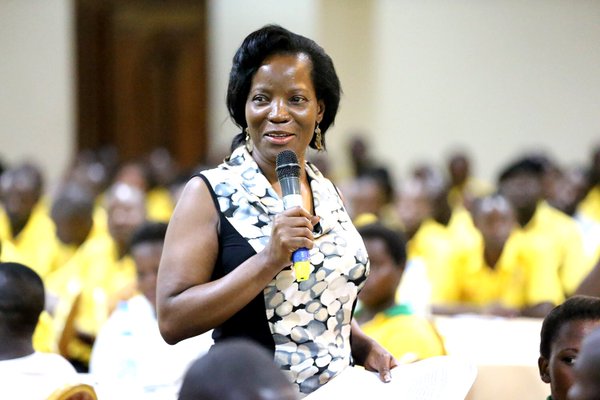
How Museveni’s meddling complicates hiring and work
Kampala, Uganda | AGNES E NANTABA | Just days after Jennifer Musisi announcing that she was resigning as executive director of Kampala Capital City Authority (KCCA), experts started discussing her likely successors and the challenges that await them.
Musisi announced on Oct.15 that she had tendered in her resignation to President Yoweri Museveni and will be out of the job by Dec. 15 after seven-years as the head of the technical arm of administrators of the nation’s capital.
Her resignation has attracted a lot of debate because she was catapulted to the position without prior city administration experience, introduced dramatic changes in approach, and was feted by President Museveni before dramatically falling out of favour.
Many commentators have pointed out that as a manager, Musisi scored some major successes, brought order and pride to a disorderly city, cut down on overt corruption at White Hall and revamped infrastructure and facilities.
She cleaned the city, resurfaced roads, installed street and traffic lighting, and reopened the city commuter rail, redeveloped medical facilities and schools, and revamped the KCCA football club; including constructing a stadium for it.
But in her resignation letter, Musisi points out that she has been constrained by competing interests between political perspectives, strategic plans, policies, regulations and work plans.
“There is inadequate political support to the efforts of the KCCA technical team to transform Kampala and therefore many planned city improvement plans have not been implemented,” the letter reads in part.
Musisi’s complaint against being frustrated by politicians was seen as directed at Museveni.
“Where there is micro-management by the appointing authority, any Executive director cannot serve with independence for fear of clashing interests,” said City lawyer and former Kampala District Land Board (KDLB) Yusuf Nsibambi. He said Musisi was, in the end, torn by the politics of populism from President Museveni who also doubles as the appointing authority.
Musisi is among the last of the original KCCA officials to resign. Soon after the 2016, when President Museveni first started bashing KCCA, Musisi’s then- deputy, Judith Tukahirwa resigned citing political interference.
She said she was quitting because of “failure of certain government agencies to assist the KCCA fulfill its potential on account of the politics of the day”.
Musisi sounded frustrated but hang on.
“Had I known what this job involves at the time the President asked me to take it up, I would have declined,” she said on February 28, 2017 while appearing before the Parliamentary Committee on Statutory Authority and State Enterprises (COSASE).
According to some observers, President Museveni’s interference has frustrated management of various government institutions either directly or indirectly.
In one of the most dramatic cases this year, Museveni in May directed the Education Minister, Janet Museveni, who happens to be his wife, to re-appoint Prof Waswa Balunywa as head of Makerere University Business School (MUBS). The university council had kicked Balunywa out and appointed Associate Prof. Moses Muhwezi as the principal in the acting capacity. They said Balunywa had clocked the retirement age of 60 as per the Pension Act. But Museveni gave him another four-year term.
Museveni was also cited in the appointment of Jolly Kaguhangire as executive director of the Uganda Investment Authority (UIA) in April 2017. She immediately fell out with the UIA board who accused her of a combination of alleged incompetence and politicking before kicking her out and installing Emely Kugonza. In this case, Museveni could not save Kaguhangire but by the time she left, she had sent some staff packing and others had resigned.
In March 2017, President Museveni intervened in the reinstatement of Uganda Printing and Publishing Corporation (UPPC) Managing Director, Irene Wasike Muwanguzi, into her office.
Muwanguzi had been fired by the BOD in 2015 for alleged incompetence, a situation that prompted her to seek for legal but also pursue political redress.
In 2016, Museveni intervened in the leadership wrangles at the National Social Security Fund (NSSF), between Managing Director Richard Byarugaba and his deputy Geraldine Busuulwa Ssali. Busuulwa was eventually fired by the Fund’s BOD for alleged insubordination and frequent disagreements with her boss.
 The Independent Uganda: You get the Truth we Pay the Price
The Independent Uganda: You get the Truth we Pay the Price



